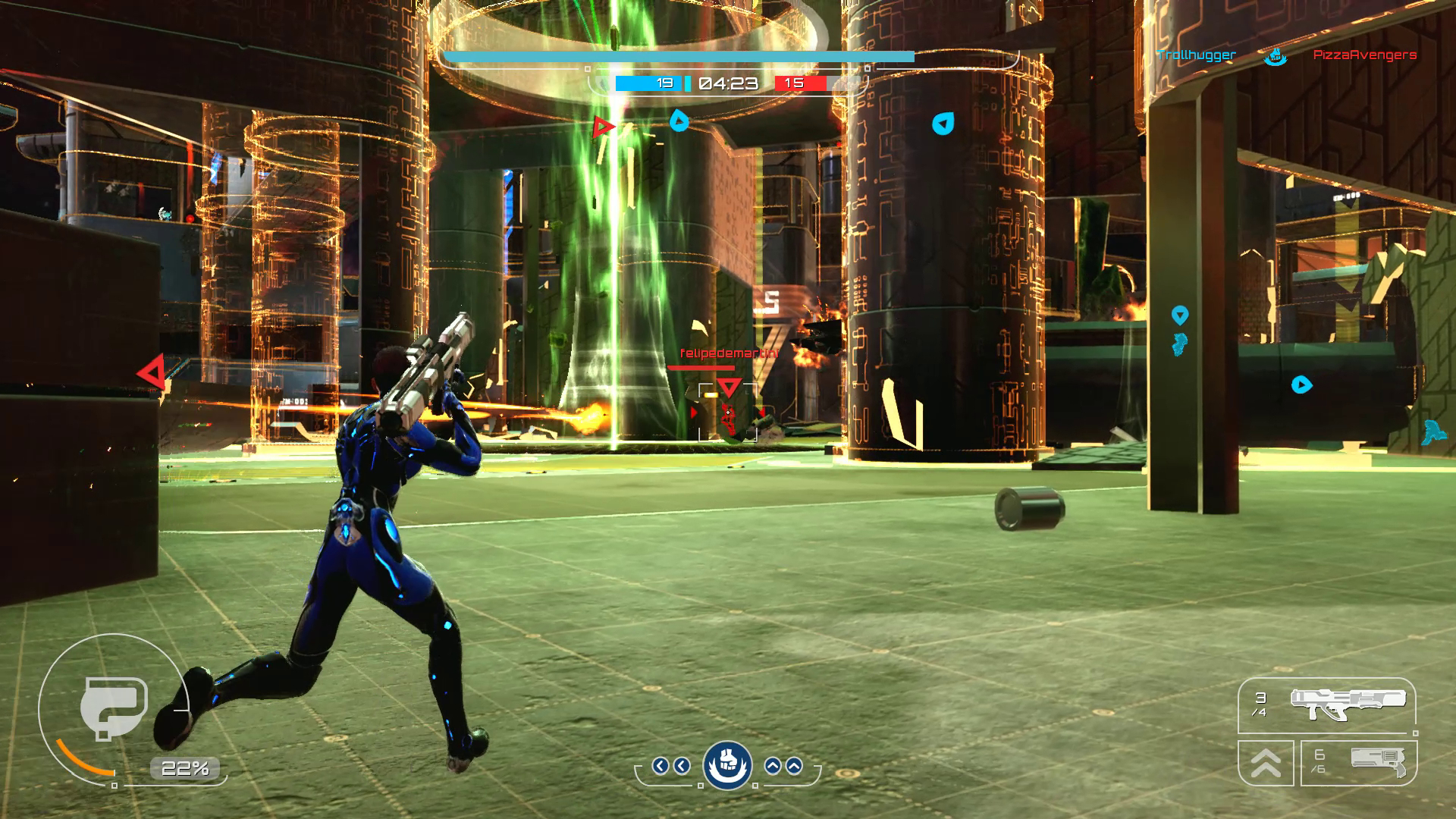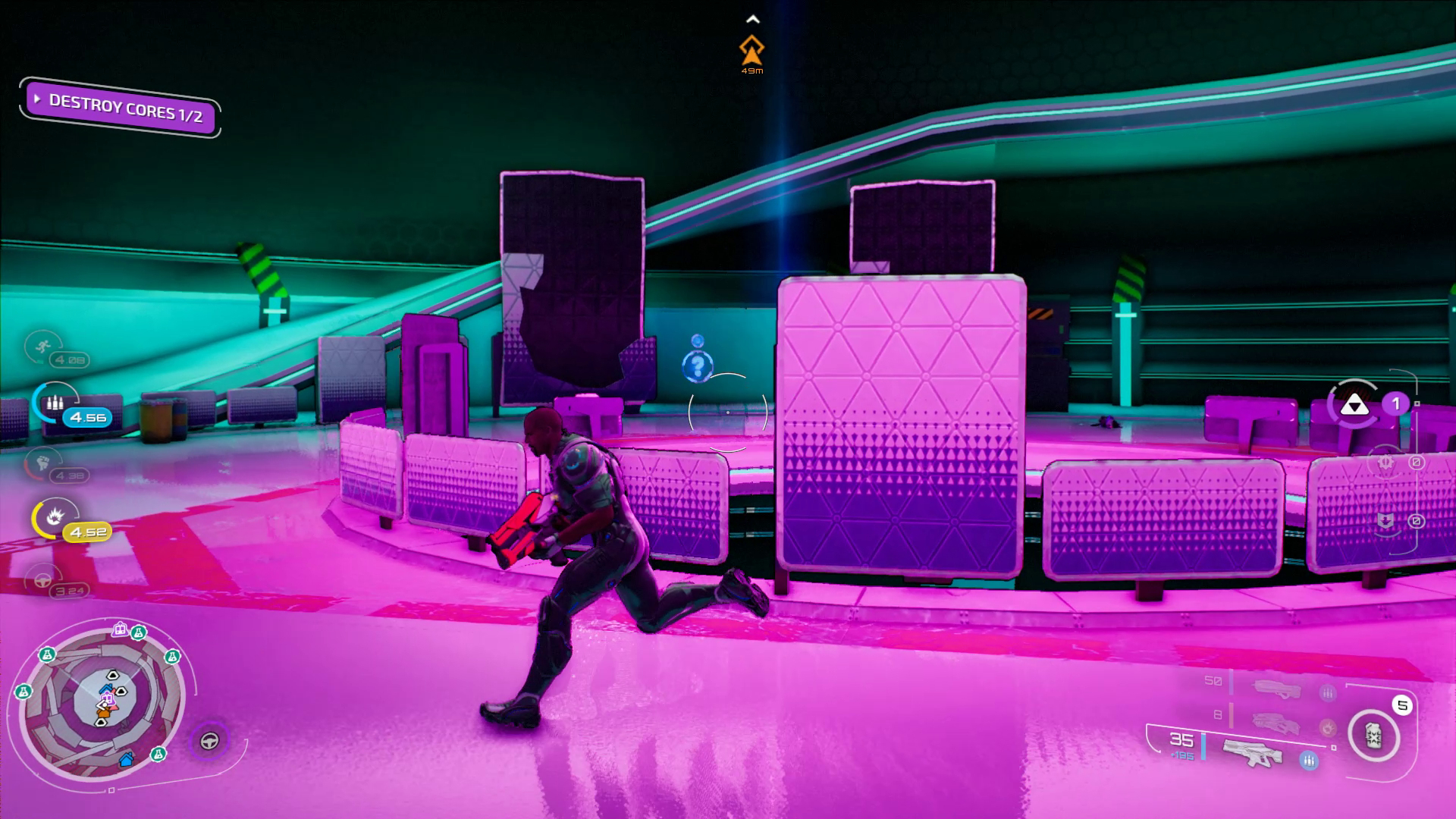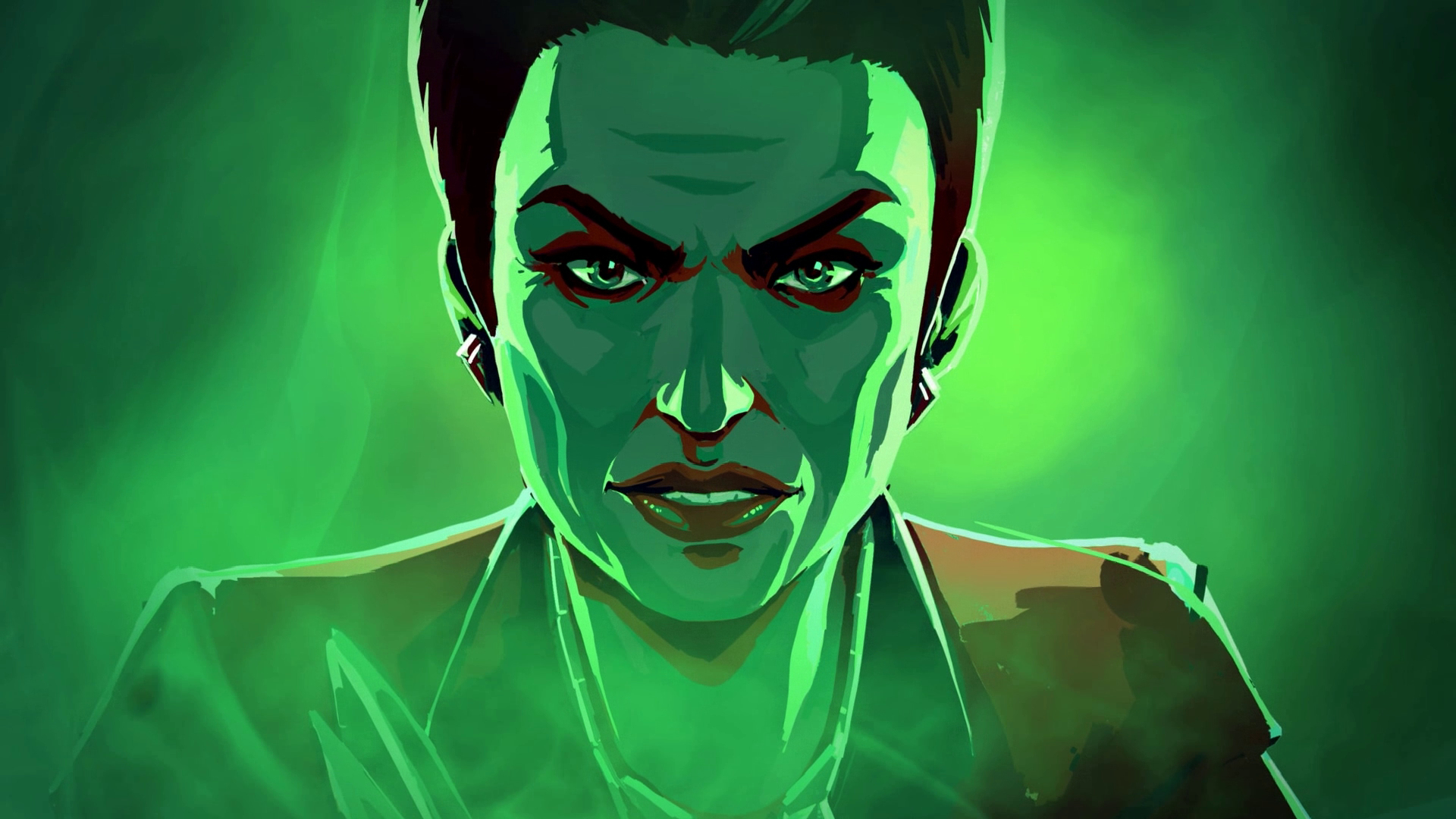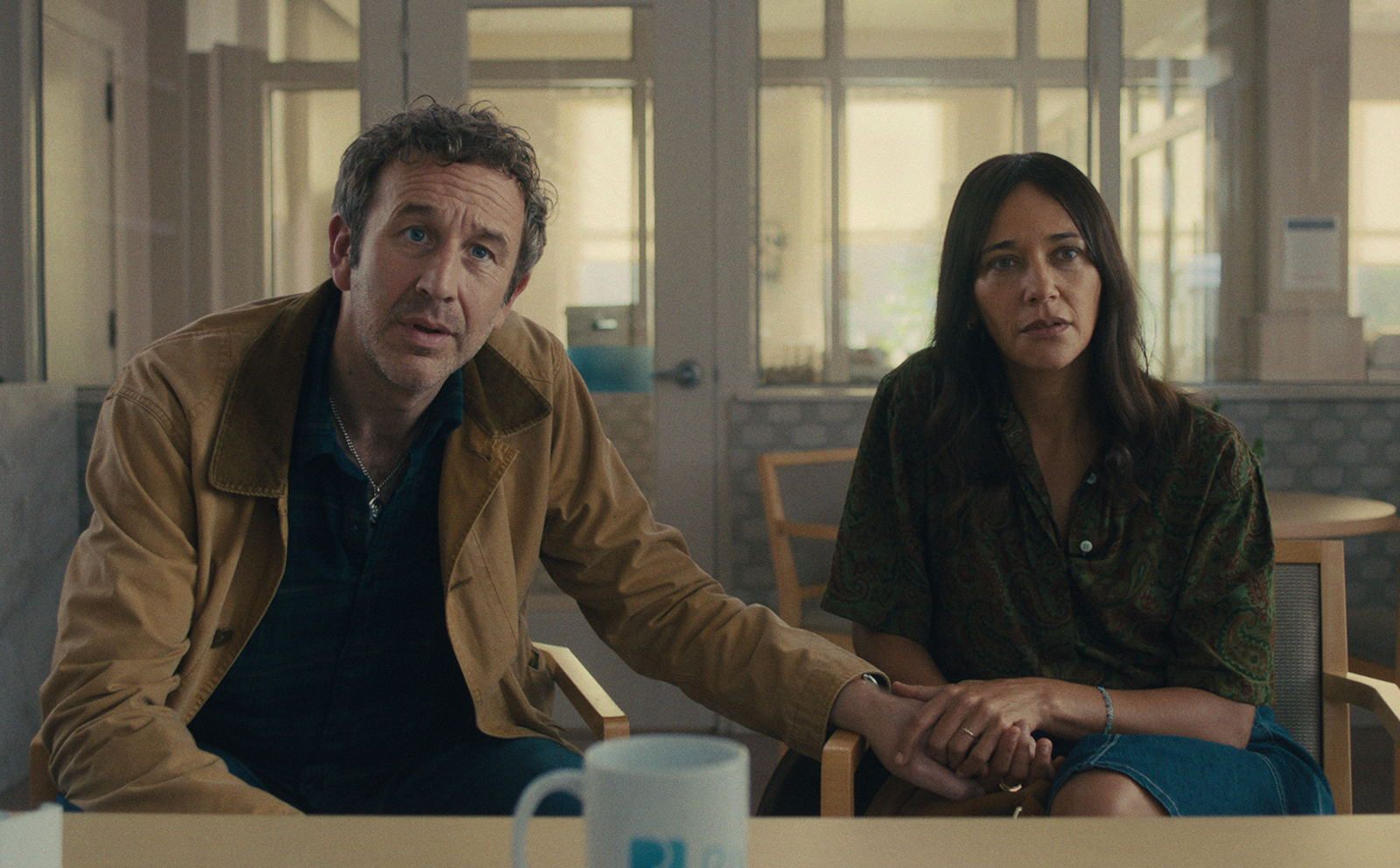Our Verdict
Repetitive and middling, Crackdown 3 is a totally average open-world game that doesn't give itself a way to stand out.
PC Gamer's got your back
What is it? Third-person open world action starring Terry Crews and an evil AI.
Reviewed on: Windows 10, i5 4690k, 16GB RAM, Nvidia GTX 970
Price: $60/£50
Release date: Out now
Publisher: Xbox Game Studios
Developer: Sumo Digital
Link: Microsoft Store
As I punch, stomp, and shoot through waves of defense bots, I'm transported to another time. Not the far future of Crackdown 3, where a reanimated Terry Crews is wrecking an evil AI, but the old days of open world games—2007, a million years ago in videogame time. It was a simpler era for the genre, when big cities and cars that blow up were enough to be novel.
Crackdown 3 is never bad, but it's hard to take much interest in it here in 2019. Big open-world games have changed a lot since 2007, but Crackdown hasn't, leaving its latest supercop adventure looking good, playing smoothly, and offering nothing new enough to make it exciting.
Corporate strategy
After the whole world's electrical power gets shut down by a shadowy island city-state called New Providence, the super-powered cops of the Agency are deployed to strike back. Mayhem ensues, the agency strike-ship is shot out of the sky, and years later an insurgent scientist reanimates the corpse of Terry Crews to fight against the ruling powers of New Providence, including an AI named Roxy.
Crackdown 3's story is as threadbare, bizarre, and stupidly charming in a B-movie kind of way. The point is that New Providence is ruled by the mega-corporation Terra Nova, and you've got to dismantle it. The city itself is a wide-open circle of skyscrapers and shanty towns, and within minutes of getting through the dockside security gates, I steal a car and drive around the loop highway circling the entire island. From a familiar over-the-shoulder third-person perspective, I climb office towers, jump over rows of townhomes, and start blowing shit up.
That'd be fun if the the moment-to-moment combat weren't such drudgery. Right-clicking to aim enables an aggressive auto-locking system that takes all the fun out of shooting. The ease of aiming does make it possible to jump and dodge incoming fire while pulling off impressive headshots and satisfying explosive kills, but it wasn't long before jumping started to feel like mindless bunny-hopping, and the feeling of drudgery returned.
Instead of fighting gangs or terrorists as in the previous Crackdown games, Crackdown 3's baddie is an exploitative capitalist megacorp. I fight to make the CEO vulnerable by attacking company assets. Attacking mines and destroying machinery, for example, weakens the middle manager in charge of mining operations. Weakening the middle managers makes their bosses more vulnerable, and so on up the corporate ladder.
To Crackdown 3's credit, the boss characters are varied and fighting them is a good change of pace. Roxy is the only artificial personality, while the rest are a diverse group ranging from prize-winning chemists to decorated former army officers. I appreciate that each installation type demands a different strategy. The ore processing pits, for example, can only be destroyed by tossing boulders into huge hydraulic mashers to clog them. When I attack monorail stations, I have to do enough damage to the security forces there to draw out the station chief, a high-powered robot equipped with a shield.

I hop around the city getting into scrap after scrap with Terra Nova forces. I collect cars and guns and quickly get a bit bored. Even though there's traffic on the roads and civilians on the sidewalks, the town feels strangely empty and lifeless. The weapons I'm gathering feel more or less the same, and none of them are overwhelmingly awesome.
On the other hand, Terry Crews is great as the voice and face of the default main character. If he were a bad guy, I'd say he was chewing the scenery, but as a protagonist it's more like he's giving the scenery a pep-talk. He's the scenery's sergeant and he wants the scenery to know that it can do anything if it applies itself. He's overacting, basically, in the hammy kind of way that only a friendly guy like Terry Crews can pull off. It's all about physical lung volume when you're operating at those levels of intensity—and Terry's got lungs for days.

Wrecked
The attached multiplayer mode, called the Wrecking Zone, is actually more interesting than the campaign itself. Teams of agents pile into a training simulator to duke it out. During a pre-release session, and then a little more after release, I played two game modes. One, called Agent Hunt, is a standard team deathmatch mode with a twist: dead agents drop their Agency badge, and you have to collect it to score. This makes a sniping a bad strategy—killing someone without being close enough to grab their badge won't make your score go up. Badges time out after a few seconds, so defending a fallen ally's badge is a good way to deny the enemy team a point.
The same auto-locking aim system is in play here, which makes for a weird dynamic: how do you play a multiplayer shooter if everyone is 100 percent accurate all the time? The key to surviving in Wrecking Zone is movement. Dodging behind buildings and using vertical space to get behind enemies turns every fight into a three-dimensional furball of explosions.
Every surface in Wrecking Zone is also completely destructible, and crumbling buildings and shattered walls add to the chaos. Destructive environments turned the second game type I played, Territories, from a standard king-of-the-hill capture mode into something much more interesting. Every building unlucky enough to be a live capture zone ended up utterly gutted.
I stare at the pantheon of great open-world games and wonder, why does Crackdown 3 exist?
The fragility of the buildings opens up all kinds of creative attacks, such as shooting the floor out from under someone or blowing through a wall to attack an enemy from the side. By comparison, the singleplayer campaign is tame and uninteresting, with far less demolition to enjoy.
The campaign just fails to distinguish itself in our post–Saints Row 4 reality. Back in 2007 and 2010, Crackdown filled a niche. Agents don't exactly have superpowers, but through their high-tech suits they're able to do classic Superman antics like picking up cars and jumping tall buildings in a single bound. Back then, we'd never seen open-world games that made you a god of the city you explored.
2014's Saints Row 4 dialed the superpowers up to 11. You could run so fast a sonic shockwave destroyed all the cars you passed on the highway; you could punch or throw people into craters in the ground. You were absolutely all-powerful, Superman by way of Neo. Plus, it was funny, with self-aware guns like the Dubstep Gun and 'Merica. It tweaked the genre with a rush of unrestrained joy.
Now Crackdown 3 comes along 12 years after Crackdown but without 12 years' worth of new ideas to share. Crackdown 3 isn't sardonic like GTA V, it's not immersive like Red Dead Redemption 2, it's not whimsical like Breath of the Wild, and it doesn't go buck-wild like Saints Row 4. I stare at the pantheon of great open-world games and wonder, why does Crackdown 3 exist? It's not bad. It's an OK game that could've been exciting a decade ago, but comes off today like a shrug carried only by the energy of Terry Crews.
Repetitive and middling, Crackdown 3 is a totally average open-world game that doesn't give itself a way to stand out.


